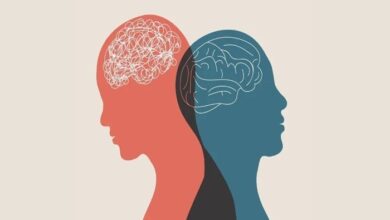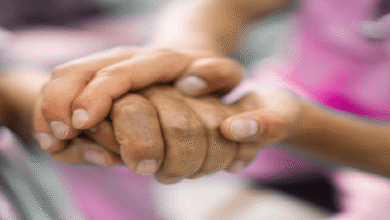How Does Drug Rehab Work? A Complete Guide

Questions Answered in This Article:
- What Is the Rehab Process?
- What Happens When You First Go Into Rehab?
- How Does Rehab Work for Drugs Day-to-Day?
- Why Do Drug Addicts Go to Rehab?
Ever wondered how does drug rehab work and what really happens behind those doors? Whether you’re considering treatment for yourself or a loved one, understanding the process can make the journey feel less intimidating. Drug rehab isn’t just about stopping substance use—it’s about building a life that feels worth living without drugs or alcohol.
In this guide, we’ll answer your most pressing questions, like how does rehab work for drugs, what happens when you first go into rehab, and why do drug addicts go to rehab. By the end, you’ll know what to expect from the rehab process and how it supports lasting recovery.
What Is the Rehab Process?
At its core, drug rehab is a structured treatment program designed to help individuals overcome substance use disorder and rebuild healthy coping skills. The rehab process typically addresses three critical areas:
- Physical health: Managing withdrawal symptoms and restoring body function.
- Mental health: Treating co-occurring disorders like anxiety or depression.
- Behavioral patterns: Changing habits that fuel addiction.
Think of rehab like physical therapy for the brain—it’s not a quick fix but a step-by-step approach to healing. Most rehab programs begin with an assessment to create a personalized treatment plan, ensuring the right level of care for each person’s needs.
What Happens When You First Go Into Rehab?
Walking into a rehab center can feel overwhelming. Here’s what usually happens during those first 24 hours:
- Intake and Assessment: Medical and mental health professionals evaluate your history of drug addiction, physical health, and any underlying mental health issues.
- Detox (If Needed): Many clients start with detox to clear substances from the body safely. This stage can involve medical supervision to reduce withdrawal risks.
- Orientation: You’ll get a tour of the facility, meet staff, and review your treatment program schedule.
This initial phase is about building trust and stability. You won’t be thrown into group therapy immediately; instead, the focus is on making you feel safe and informed.
How Does Rehab Work for Drugs Day-to-Day?
A typical day in rehab follows a structured schedule. Why? Because structure creates a sense of stability—a key element in early recovery. While schedules vary by program, here’s what you might experience:
- Morning Routine: Healthy breakfast followed by meditation or mindfulness exercises to set the tone.
- Therapy Sessions: Individual counseling, family therapy, and group therapy focused on addiction education and coping strategies.
- Skill-Building Activities: Workshops on stress management, relapse prevention, and communication.
- Evening Support Groups: Peer-based support groups such as 12-step or SMART Recovery to strengthen community ties.
Every element is designed to tackle addiction from multiple angles—physical, emotional, and social.
Why Do Drug Addicts Go to Rehab?
People don’t enter rehab because of weakness—they do it because addiction is a chronic disease, not a moral failing. Without proper care, the cycle of substance abuse can lead to severe health issues, legal problems, and broken relationships.
Rehab provides:
- A safe, controlled environment free from triggers.
- Access to evidence-based therapies like CBT and DBT.
- Medical supervision for detox and co-occurring conditions.
- A supportive community that understands the journey.
When you ask, how often does drug rehab work?—the answer depends on factors like program quality and personal commitment. But research shows that structured addiction treatment significantly improves long-term recovery outcomes compared to quitting alone.
Types of Rehab Programs and Levels of Care
Not all rehab looks the same. Programs vary based on your needs and lifestyle:
- Residential Treatment: 24/7 care in a supportive setting—ideal for severe cases.
- Partial Hospitalization Programs (PHP): Intensive therapy during the day, but you return home at night.
- Intensive Outpatient Programs (IOP): Flexible schedules for those balancing work or family responsibilities.
- Aftercare and Alumni Programs: Continued support groups and counseling to maintain sobriety after discharge.
The right level of care depends on your substance use history, health, and home environment.
The Role of Therapy in Drug Rehab
Therapy isn’t just “talking about your feelings.” It’s the backbone of recovery. Here are key components:
- Individual Counseling: Personalized strategies to manage cravings and triggers.
- Group Therapy: Learning from others who share similar struggles.
- Family Therapy: Repairing relationships and building a support network.
- Specialized Sessions: Trauma-informed care, holistic approaches, and mental health management.
These therapy sessions help you rewire thought patterns, develop coping tools, and prevent relapse.
Support Beyond Treatment: The Recovery Process
Finishing a treatment program is just the beginning. Lasting recovery means creating a life that supports sobriety. That includes:
- Regular attendance at support groups.
- Ongoing counseling or therapy sessions.
- Healthy routines like exercise, nutrition, and mindfulness.
- Building a network of sober peers and family support.
Recovery is a marathon, not a sprint—but every step matters.
Ready to Start? Here’s How Drug Rehab Works for You
If you’ve been wondering how does drug rehab work or what happens when you first go into rehab, the answer is clear: rehab gives you structure, tools, and a community dedicated to your healing. You don’t have to face drug addiction or alcohol addiction alone—help is available.
Call The Hope House today at (480)-448-6149 to learn more about our personalized treatment plans and evidence-based programs. Your recovery journey can start now. Why wait another day when a healthier, happier life is within reach?




